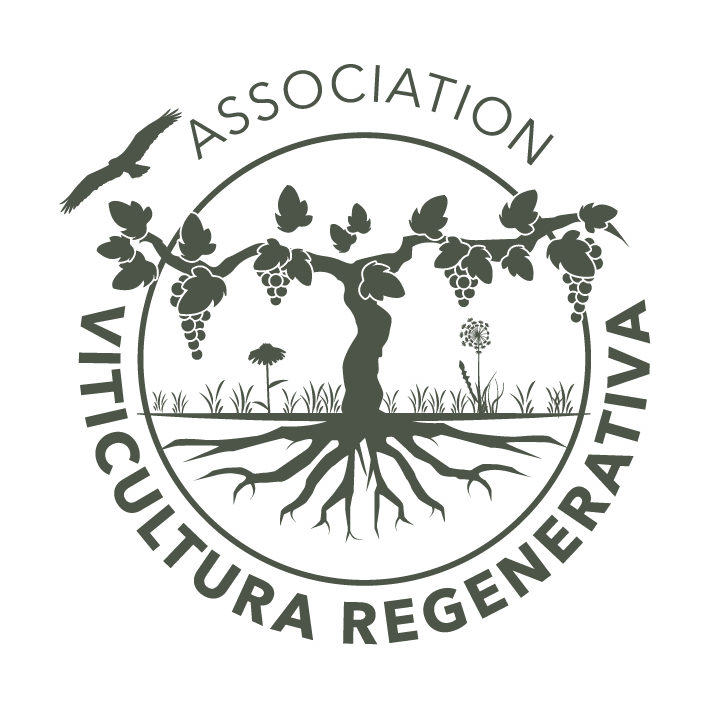Training session "Learning Drops" on regenerative viticulture
On 10 July, a new training session of the "Learning Drops" cycle was held in the Penedès, organised by EDA Drinks & Wine Campus. This conference focused on regenerative viticulture and brought together more than 50 professionals of the industry, including representatives of some of our associated wineries, such as Familia Torres, Jean Leon, AT Roca and Recaredo, who participated in the conference.
The day began with a welcome from Mireia Torres, director of innovation and knowledge at Familia Torres and director of Jean Leon, who wanted to begin the training by inviting attendees to reflect on the importance of regenerative viticulture and sharing knowledge. "These practices make up a new agricultural model that allows us to counteract the loss of fertility of our soils and the effects of climate change. Although the results are long-term, we have been able to observe very positive trends, with a reduction in erosion, greater water retention, carbon fixation and an increase in biodiversity."
Xavier Domene, researcher at CREAF (Center for Ecological Research and Forestry Applications), continued. In his keynote speech, he wanted to highlight that the soil has five components that influence it: parental materials, climate, topography, living organisms and time. "It's the perfect time to look for optimistic ideas, and regenerative wants to improve the soil while we use it." Domene emphasized the 9 principles on which regenerative agriculture is based and its main practices. He also reviewed all the species that we can find in the soil and how much there is still to know. Ester Pérez, an expert in regenerative viticulture at The Regen Academy, focused on green covers. "These are a set of plants, whether planted or spontaneous, that protect soils from erosion and reduce water evaporation, increasing their retention capacity and preventing the destruction of microbial life." She also made a recommendation on the percentage of grass, legumes and crucifers necessary to have a better evolution of the soils. Carlos Garbisu, scientific director of NEIKER (Basque Institute for Agricultural Research and Development), focused his explanation on the microbiota, recalling that "we are holobiont individuals, hosts of microorganisms". He also stressed that "Regenerative agriculture is not an option, it is a necessity and an ethical and deontological imperative."
The training session continued with the presentation of good practices carried out by Familia Torres. Montse Catasús, from the winery's winemaking team, commented that "in 2008, Miguel A. Torres became aware of climate change and its effects on grapes, and that is how our Torres & Earth environmental program began. Regenerative is a paradigm shift where what we want, in the end, is to imitate nature from a holistic vision." He also mentioned some of the research projects that are being carried out.
In this sense, Roger Rovira, viticulture technician at Recaredo, commented that "there is no perfect recipe to implement these practices, but perhaps a good strategy is to give up a large production today to guarantee fertile soils in the future". Agustí Torelló, winegrower and oenologist at AT Roca, commented to the attendees that "you make your way by walking, and every day we learn that we don't know as much as we think we do. We have been carrying out these techniques for five years and our main objective is to keep the plants healthy and balanced to avoid diseases."
The day continued with the celebration of a regenerative viticulture workshop in which Montse Catasús, a member of the Regenerative Viticulture Association, took the floor to explain to the participants the different initiatives that are being carried out by this entity. "We created this association to bring together wineries and winegrowers who were doing the same things as us and to be able to walk the path together. We are now 125 members from 8 countries." He also recalled that the association has promoted the RVA (Regenerative Viticulture Alliance) certification, validated by Ecocert, to give visibility to wines made with regenerative practices.
To close the session, a tasting was held in which the speakers were able to share how their practices in the vineyard are transferred to their wines. Catasús, Rovira and Torelló were in charge of energizing this section with three wines from each of the houses they represent (Familia Torres, Recaredo and AT Roca, respectively). The references chosen were Clos Ancestral White 2024, Jean Leon Vinya Gigi Chardonnay 2024, Clos Ancestral 2023 on the side of Familia Torres; Gres 2024, Els Gorgs 2014 and Esparter 2017 by AT Roca and Aloers 2019, Mirabelles 2019 and Serral del Vell 2018 from Recaredo.
Elisa Ucar, director of EDA Drinks & Wine Campus, closed the training session by conveying "the importance of sharing knowledge in areas as relevant as the care of living soils and the promotion of biodiversity".
In this way, "Learning Drops" is consolidated as a high-value itinerant training proposal, which gives students from all over the territory the opportunity to learn first-hand about different realities of the sector and learn from references in multiple disciplines linked to viticulture. An experience that allows them to build a global, diverse and enriching vision of the world of wine.
